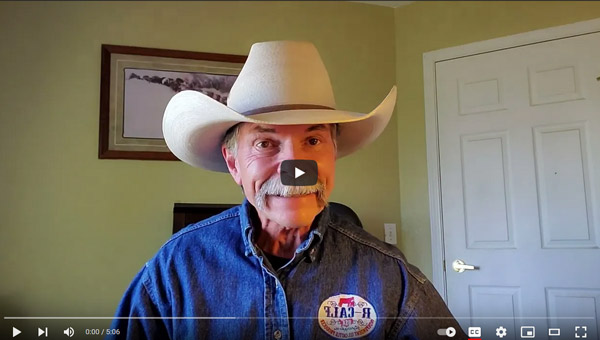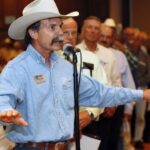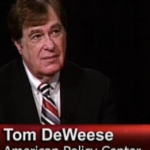
I need to preface this week’s segment with this: R-CALF USA thinks radio frequency identification (RFID) ear tags are a wonderful technology – available to anyone who chooses to use it. Our only problem with this RFID technology is when Big Brother, our government, tries to force you to use it as a prerequisite for being in the cattle business, whether you want to use it or not. And so it was that former President Trump’s Agricultural Secretary, Sonny Purdue, tried to do just that – force you to use RFID ear tags anytime you ship adult cattle across state lines. That was in April 2019 – Big Brother wanted mandatory RFID by 2023. But we gathered our resources and we sued. We retained Harriet Hageman of the New Civil Liberties Alliance to represent us before the court. And we won. Secretary Purdue withdrew his unlawful RFID mandate within a matter of weeks. But Sonny Purdue wouldn’t quit trying. He soon issued a notice stating he was still going to mandate RFID by 2023. And then we elected a new president and President Joe Biden appointed a new Secretary of Agriculture, Tom Vilsack. One of the first things Secretary Vilsack did was to withdraw Sonny Purdue’s RFID mandate by 2023. So after all this drama, everyone took a deep breath…except us. You see, even though we’d stopped the government’s effort to mandate RFID by 2023 clear back in 2019, we never stopped litigating. And here’s why. For the government to impose a costly, industry-wide RFID mandate, the government needed to develop a coordinated, industry-wide plan for deciding what type of RFID technology to use and how it would be enforced. Now the government couldn’t do all of this on its own so it created an advisory committee consisting of RFID ear tag manufacturers, state animal health officials, and industry participants. When the government determined the first advisory committee was moving too slow, it set up a second advisory committee – this one consisting of only participants who wanted the government to force everyone to use RFID ear tags. But when the government establishes advisory committees like this it’s supposed to follow the law. And the law required that the government be transparent when it establishes advisory committees that it then relies on to make policy decisions. But these advisory committees the government relied on to try and mandate RFID ear tags were not transparent. So we alleged the government had, yet again, violated the law. This turned out to be a long fight. We wanted to question government officials about their roles in establishing the two advisory committees. The court refused our request and dismissed our case. But we wouldn’t quit because this was just plain wrong. And so we appealed, only to fall short again. The appellate court agreed that we shouldn’t be allowed to question government officials and it determined that even though the government had established its advisory committees under any common definition of the term “established,” the court defined “established” so narrowly as to render the law that requires transparency toothless. But while all this side drama was going on, Agriculture Secretary Vilsack was busy trying to figure out how to still achieve former Agriculture Secretary Purdue’s desire to mandate RFID by 2023. So, Secretary Vilsack wrote a proposed rule to do just that. He then sent his proposed RFID rule to the White House’s Office of Management and Budget, know as OMB, for the President’s approval. Now the proposed RFID rule was sent to the OMB this spring, and the government wanted to issue the proposed rule for public comments in July so it could begin its RFID mandate in June of 2023. But we joined with several of our allies, and we met with the OMB, urging it to scrap the RFID rule or, at the very least, send it back to Agriculture Secretary Vilsack for a rewrite. Well, July is long gone and there’s been no proposed rule, so it looks like we’ve at least delayed its issuance. Meanwhile, we’re still litigating the issue of the unlawful advisory committees. Harriet Hageman has just recently asked the U.S. Supreme Court to hear our case. You see there’s a conflict among the lower courts regarding how the court’s should define the term “established,” and that gives us a pretty good chance of having the Supreme Court hear our case so they can settle the question once and for all. There’s no question but that we’ve slowed Big Brother way down. And we intend to keep up the fight until we win. It takes members and money to continue defending the liberties and freedoms for America’s cattle producers. If you’d like to help, please go to our website at www.r-calfusa.com and join with us.



